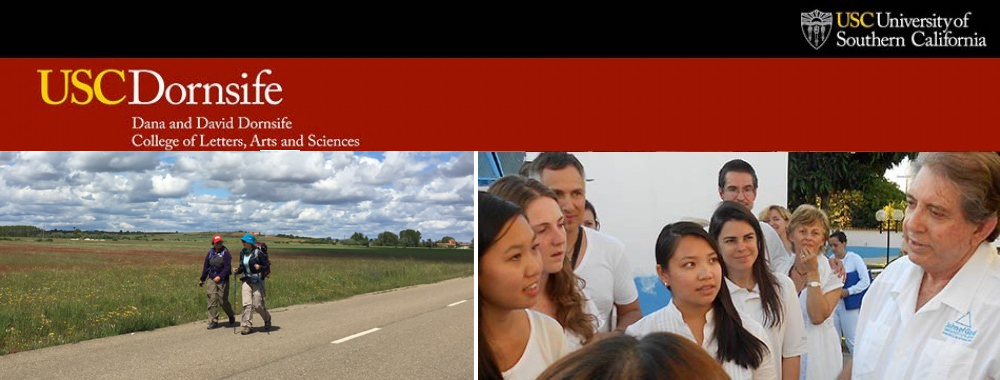
Flag stating: REFUGEES WELCOME
Human movement and migration has been a part of our species’ survival strategy since pre-history. Only now, in the modern era, where states are demarcated by distinct (and often imperfect) geopolitical boundaries has the topic of human migration and the rights of migrants become so polemic. Recent violent conflicts in Syria and Myanmar, as well as the continuation of historic political instabilities in other regions, have caused issues surrounding refugee claims for asylum and countries’ migration policies to become all the more controversial. These issues make headline news and influence national elections even in states geographically distant from the crises at hand.
Those walking the Camino de Santiago, a group which has voluntarily chosen to (temporarily) adopt an itinerant lifestyle in a foreign land, unsurprisingly have some passionate views on the subject of human movement and its consequences.
“It’s not the Syrian refugees that are the problem,” Rena, a retired German anesthesiologist in her sixties affirms. “No, they’re fleeing war, violence. They’ve had their homes destroyed, their cities burned. How could you fault them? The problem is the North Africans, the economic migrants. Men who come from Morocco and Tunisia just because they can’t find jobs in their home country. They’re not hard workers [in Germany] either, and they just stir up trouble.”
Rena’s remarks are interesting for their dichotomy. She fully supports the rights of persons fleeing physical violence to migrate and claim asylum in the European Union but condemns those fleeing structural violence in their homelands that precludes them from finding opportunities for gainful employment. She would later qualify her comments to me, adding that fleeing poverty is one thing, but it’s another story when that poverty is the result of one’s own lack of ambition.
Hannah, a twenty-something woman living in London, objects to the idea of differentiating economic migrants. “I just think the whole debate around economic migrants is misguided. People wouldn’t leave their homes, their culture, and their families behind unless it were absolutely necessary. If they’re showing up on our shores, it’s because they have no other choice. We’re obligated to help.” For her part, Hannah says, she volunteers with Young Roots, an organization in the UK that gives refugee children and teens a place to come after school to learn about British culture, meet other recent immigrants, and spend time together without fear of persecution for speaking a language other than English.
As it turns out, most younger pilgrims (those aged 35 or less) surveyed on the Camino were skeptical of the idea that economic migrants were undeserving of the same refugee privileges as those fleeing violent conflict. Older pilgrims, especially those older than 60, were more likely to view economic migrants as less-deserving of asylum rights than refugees fleeing war. It must be noted that the sample size in which this trend was observed is small, no more than a dozen. But the pattern is present nonetheless.
That said, every pilgrim with whom I spoke — regardless of age, race, gender, or religion — affirmed the right of those who migrate to escape violent conflict (such as those refugee populations from Syria and Myanmar that dominate today’s newscasts) to claim asylum status, be that in the EU or wherever else they end up. “It’s hard to overemphasize the gravity of the current Rohingya refugee crisis in Myanmar,” says Jonathan, an Australian man of around 30 who is currently training to work as a diplomat in Vietnam. “It’s ethnic cleansing, right, yet so many people seem not to care. It’s been a breath of fresh air to be on the Camino and meet so many other people who recognize how big of a problem stuff like that is.”
A portion of these sympathies may be attributable to the relatively privileged backgrounds from which many pilgrims come. Travel, especially extended international travel, costs money. Thus, there’s a strong positive correlation between wealth and time spent abroad, just as there’s a strong positive correlation between time spent abroad and one’s likelihood to support the plight of refugee populations and other “more liberal” political stances.
The pilgrims of the Camino de Santiago come from many corners of the globe. They differ in age, ethnic background, socioeconomic position, and religiosity. One would expect all this difference to lead to a diversity in opinions on the topic of refugee rights and policy more than the age disparity mentioned above. But these testimonies also demonstrate that the pilgrims on the Camino de Santiago typically display strong sympathies for global refugee populations fleeing war, as well as equally strong censure for policies that diminish or obstruct the status of these groups as individuals.
